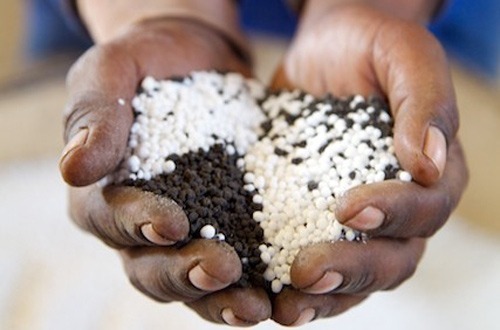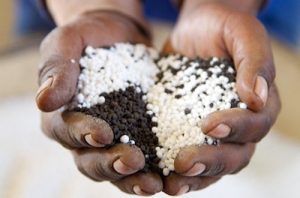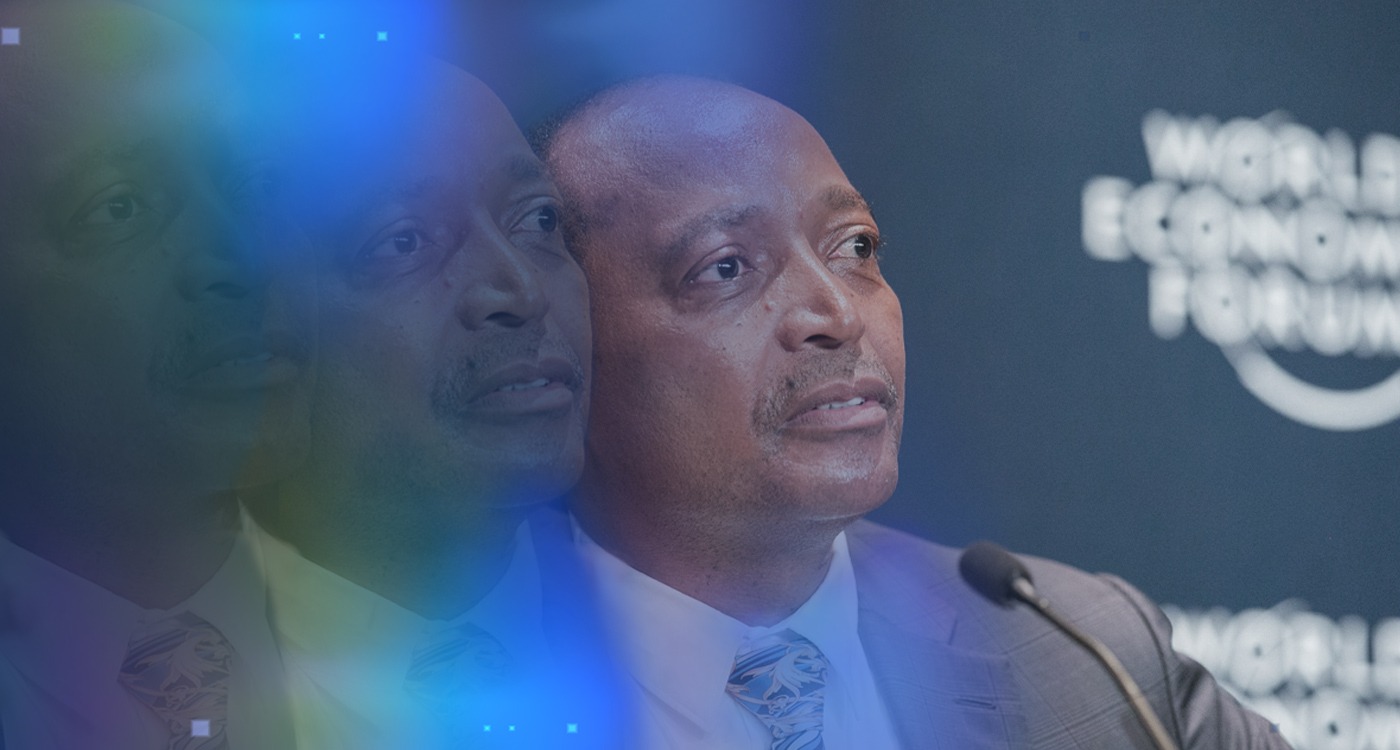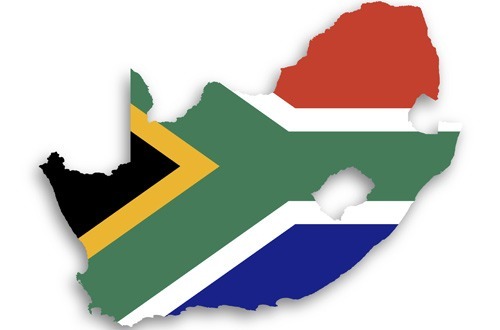South Africa’s Economy Grew 2 Percent In Third Quarter, Boosted By Agriculture
South Africa’s economy grew by 2 percent in the third quarter of 2017 after expanding 2.8 percent in the second quarter, the statistics agency said on Tuesday.
Statistics South Africa said the largest contributor to gross domestic product (GDP) during the period was the agriculture, forestry and fishing industry sector, which increased by 44.4 percent and accounted for 0.9 percentage points of overall growth.
Mining and quarrying increased by 6.6 percent, adding 0.5 percentage points to GDP growth, while manufacturing was up 4.3 percent and contributed another 0.5 percentage points.
These sectors offset the negative contributions to GDP from the electricity, gas and water, trade and general government components.
South Africa’s economy has struggled to grow meaningfully since a 2008/2009 recession, and has been displaced by Nigeria as the biggest in Africa, although it remains the most industrialised.
The National Treasury now expects growth of just 0.7 percent for the whole of 2017, a downward revision from the 1.3 percent predicted in February.
The lacklustre economic performance has hamstrung efforts to cut an unemployment rate of more than 28 percent of the labour force. (via African News Agency)
Nigerian’s Dangote Cement Partners With Online Shopping Giant Jumia
Nigerian based Dangote Cement has signed a deal with the e-commerce platform Jumia Nigeria to sell its cement to online.
According to the group, the move was designed to reduce price and ease logistics inherent in the purchase of its products.
At the announcement of the deal in Lagos, Dangote Cement key account director Chux Mogbolu said Dangote Cement was happy to partner with the online shopping giant in a bid to make Dangote cement available with ease to customers.
According to the deal, Nigerians and corporate bodies wishing to purchase a minimum of 300 bags of 50 kilogramme cement and above can now order on Jumia from the comfort of their rooms at the reasonable cost of N2,500 (R66.59) per bag and have these delivered to any place of their choice without any extra cost for transportation.
Mogbolu though said that this would only apply to the major urban centres of Lagos, Port Harcourt, and Abuja for now until further notice.
He said: “Dangote Cement decided to work with Jumia Nigeria based on its credibility and excellent performance over the years in online shopping management”, adding that the new initiative would help arrest the scams perpetrated by online fraudsters who deceived the people by asking them to come and purchase Dangote Cement for N1,000 per bag.
“For now, the pilot scheme is live in Lagos, Abuja and Port Harcourt, but we can extend to other cities depending on the level of demand and performance of the new deal.”
“With the deal, Nigerians in need of a seamless supply of cement from Dangote can now place an order and pay online and wait for the delivery in record time from any of Dangote’s nearest cement plants to Lagos, Port Harcourt or Abuja. We are starting with minimum order quantity (MOQ) of 300, 600 and 900. We may increase depending on demand surge as time goes on,” Mogbolu explained.
CEO of Jumia Nigeria Juliet Anammah said the deal with Dangote Cement is part of efforts to deepen service delivery on Jumia Nigeria’s online platform.
She said she was of the belief that the deal will be beneficial to all parties involved and deepen further online shopping in Nigeria as evidenced in other parts of the world.
The Jumia Nigeria boss reflected on the 2017 Black Friday Festival run by her organisation and said this had attracted more than 14 million visits since the commencement of the campaign on November 13.
“The annual sales event, which was initiated in Nigeria in 2013 by Jumia, remains the busiest and largest shopping day of the year for both online and offline stores. This year’s explosive Black Friday numbers demonstrates the increasing capacity and flexibility of the online retail space in Nigeria.
“We deliver to the 36 states across Nigeria and are able to reach neighborhoods and shoppers who traditionally have not had access to a wide variety of products and deals. This year we also see the increasing interest in groceries and other FMCG products which reflect the increasing relevance of Black Friday to the average Nigerian,” she added. (via African News Agency)
SA Water Minister Urges Business Community To Invest In Water Infrastructure
South African minister of water and sanitation, Nomvula Mokonyane, on Tuesday urged the business community to invest in the country’s water security in a bid to prevent the collapse of one of the sectors on which the economy rests.
Speaking at the Water Infrastructure Investment Summit 2017 in Johannesburg, Mokonyane said the conversation aims to shift the water and sanitation sector investment landscape to a space that is open and enabling for investment and inclusive growth opportunities.
Mokonyane said that investment in the water sector would also mean the emergence of new players, specifically blacks, women and the youth.
“We are seeking a new partnership with the business and investment sector to ensure water security in South Africa in a manner that firstly ensures access to safe water and sanitation universally and in line with the Sustainable Development Goals,” Mokonyane said.
“Radical socio-economic transformation entails, among others, the introduction of new models and mechanism of working relationships that will enhance the effective and efficient delivery of service to the people. This means that we have to look at new ways for an integrated water resource management.
“Efforts to manage, protect and preserve water as a critical resource in a sustainable manner speaks to the collective responsibility of all the stakeholders in the water sector.”
The Water Infrastructure Investment Summit is a significant gathering of various industry leaders who are coming together to plot new and inspired ways to ensure the country’s water security in a bid to close the water gap.
“All of us, jointly and separately have specific roles to play to ensure that through infrastructure development, we can bring about inclusive economic growth and prosperity for the African child,” Mokonyane said.
“The water sector in South Africa has been registered as a critical player in the World Economic Forum on new models in promoting investment in water and sanitation and appreciating waste water as a new gold.”
This comes as water shortage in South Africa has become a critical issue, with 186 municipalities owing a total of R10.7 billion to the Department of Water and Sanitation (DWS) for water supply, of which R 3.9 billion is owed to the Water Trading Entity (WTE) of DWS,
and R6.8 billion is owed to various water boards.
Of the top 30 municipalities who have outstanding debt, Vhembe District Municipality is
ranked the highest – with R 642 876 734 owed.
Mokonyane has threatened to cut the water supply to 30 municipalities should they fail to pay their outstanding debt by Friday as a last resort to recover the losses. (via African News Agency)







